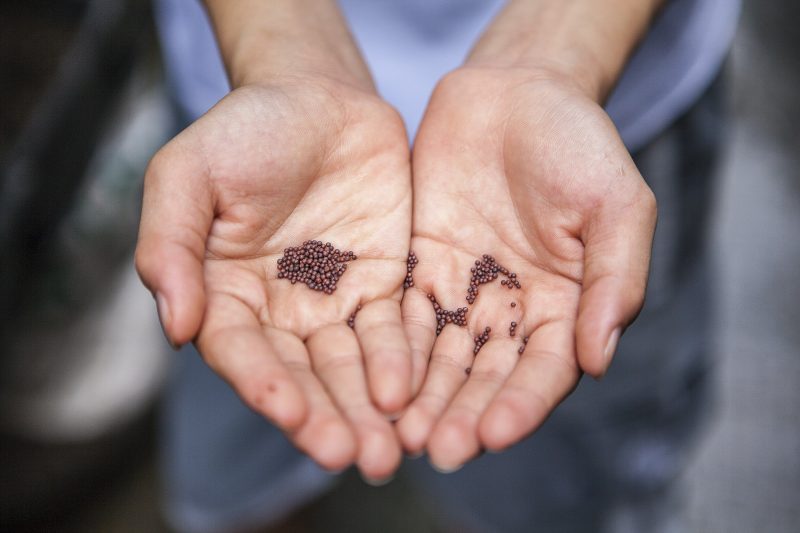Here at SeedWise we have three ways seed farmers can use to describe their seeds: 1) Heirloom seeds, 2) Open-pollinated, and 3) Certified Organic. In this post we are going to talk about open-pollinated seeds. For more information on the other three types, check out our other posts in the links above!
What are Open-pollinated seeds?
Open-pollinated varieties are seeds that result from pollination by insects, wind, self-pollination, or other natural forms of pollination. Open-pollinated varieties of seeds breed true or are true to type. This means that if you plant, grow and save these seeds, then plant them again, you will get the same genetic characteristics as the parent plant in future generations. Farmers can save these seeds from open-pollinated plants and do not have to purchase new seeds every year.
What does Growing “true to seed” or “true to type” Mean?
True to seed or true to type refers to plants whose seed will grow the same type of plant as the original plant or parent plant. With care to prevent cross-pollination, open-pollinated plants will almost always grow true to seed.
What does Cross-pollination Mean?
Cross-pollination refers to a plant that can be pollinated by another plant of a different variety, but the same species. For example, if you are growing “Brandywine” tomatoes and the Brandywine cross pollinates with a nearby “Green Zebra” tomato, the resulting seeds will be an interesting variety of tomatoes that has traits from both plants. However, pollen from a daisy or an apple tree can not cross-pollinate with a rose to create new rose seeds.
In addition, when farmers produce new seed varieties by cross-pollinating, they save the seeds from the most desirable plants, or the plants with the most desirable traits. Seed saved from cross-pollination will not always grow true to type.
What does Open-Pollinated Mean to the Gardner?
The big draw for open-pollinated seeds is that they can be saved from mature plants and re-sown every year. These seeds will grow into a plant with the same traits you know and love. If you grow a variety you enjoy or that does well in your garden, you can save seeds from the same plant to plant next season! It saves you money and time in the long run. Also, it helps you to maintain your plants and future plants.
Keep in mind that both the wind and insects will pollinate different open-pollinated plants. Therefore, with some common home garden plants, notably squash and pumpkins, saving seed can be a gamble. Remember, unless different varieties are separated by specified distances, they may exchange pollen or “cross-pollinate” each other. Check out all of our open-pollinated varieties! You can talk with the farmer about any seed questions you have!

